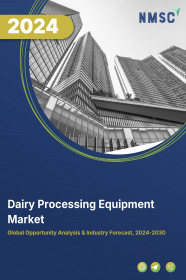
UK Elevator Market by Type (Passenger elevator, Freight elevator and Others), by Technology (Traction and Hydraulic), by Service (New Installation, Maintenance and Modernization), by Capacity (Less than 1500 kg, 1500 to 2500 kg, 2501 to 4000 kg and More than 4000 kg) by Speed (Less than 1 M/S, Between 1 to 4 M/S and More than 5 M/S), by Deck type (Single Deck and Double Deck) and Others- Opportunity Analysis and Industry Forecast, 2024 –2030
Industry: Construction & Manufacturing | Publish Date: 15-Feb-2025 | No of Pages: 129 | No. of Tables: 95 | No. of Figures: 60 | Format: PDF | Report Code : CM1613
US Tariff Impact on UK Elevator Market
Trump Tariffs Are Reshaping Global Business
Market Definition
The UK Elevator Market size was valued at USD 2.9 billion in 2023, and is predicted to reach USD 3.9 billion by 2030, at a CAGR of 3.2% from 2024 to 2030. The elevator market represents a dynamic sector encompassing the design, manufacturing, installation, and maintenance of elevator systems. From conventional traction elevators to cutting-edge smart solutions, this market offers a diverse array of vertical transportation choices customized to suit the distinct requirements of various buildings and infrastructure projects. Stakeholders within the elevator market include manufacturers, suppliers, contractors, architects, building owners, and facility managers. Manufacturers continuously innovate to enhance elevator performance, safety, and sustainability, while suppliers provide critical components and materials necessary for system construction.
Additionally, sustainability considerations, including energy efficiency and material recyclability, are increasingly integral to elevator design and operation. They align with broader environmental objectives and sustainable building practices. Thus, the elevator market is a cornerstone of vertical mobility as elevators enhance functionality, accessibility, and sustainability within buildings and urban landscapes worldwide.
The Surging Construction Sector Drives the Growth for Elevators Market
The elevator market in the UK. has seen impressive growth, achieving a substantial market size of USD 2.9 billion in 2023, with forecasts indicating further expansion to USD 3.8 billion by 2030. This surge is primarily driven by a remarkable increase in new construction projects and renovation activities across the country.
The construction boom encompasses various sectors such as residential, commercial, and industrial, leading to a heightened demand for elevators. The urban landscape of the UK. is witnessing the emergence of high-rise buildings, commercial complexes, and residential towers, necessitating elevators for vertical transportation.
Renovation efforts aimed at upgrading existing buildings also contribute to the demand for elevators. With a focus on modernizing infrastructure and improving building accessibility, elevator installation and modernization projects have become integral parts of renovation initiatives. The demand for new housing, estimated at around 340,000 new homes per year in England according to research by the National Housing Federation (NHF) and Crisis from Heriot-Watt University, further drives the need for elevators in residential complexes and multi-story dwellings.
The growth of the elevator market in the UK. is intertwined with the construction and renovation sectors. As the construction industry flourishes, the demand for elevators is expected to continue growing steadily, reflecting a robust and expanding industry landscape.
Rapid Urbanization Fuels the Growth of the Market
In the UK., the elevator market has witnessed substantial growth driven by the ongoing urbanization and infrastructure development across the nation. The expanding urban centers, which demand vertical transportation solutions for high-rise buildings, office complexes, shopping malls, and residential towers. Government initiatives to boost infrastructure development also contribute, requiring advanced elevator systems for enhanced accessibility and convenience.
Technological advancements such as destination control systems and predictive maintenance algorithms further fuel market growth. elevator manufacturers focus on innovation to provide smarter, safer, and more sustainable vertical transportation solutions. Changing lifestyle preferences, demographic shifts, and evolving workplace dynamics also contribute to elevator demand. The preference for convenience, accessibility, and safety underscores the vital role of elevators in modern building designs and infrastructure projects.
The symbiotic relationship between urbanization, infrastructure development, and elevator market expansion highlights its long-term viability and growth potential in the UK. As cities evolve and infrastructure investments increase, the elevator market is expected to thrive, meeting the vertical transportation needs of a rapidly urbanizing society.
The High Initial Costs Hinder the Market Growth
The significant costs associated with elevator installations, maintenance, and upgrades present notable hurdles to market expansion. The initial investment needed to install elevator systems, especially in buildings not originally designed for such infrastructure, can place a substantial financial burden on building owners and developers. Additionally, ongoing expenses related to maintenance contracts, which entail regular inspections and repairs, contribute to overall ownership costs. Moreover, the need for modernization to adhere to updated safety standards and enhance energy efficiency exacerbates the financial strain. These expenditures can be particularly daunting for building owners in regions with limited financial resources or older buildings where retrofitting elevators is complex and costly. Consequently, the heightened costs associated with elevators restrain market expansion, impacting growth prospects across various regions.
The Integration of Artificial Intelligence (AI) in elevator Creates Future Opportunity Growth
The implementation of AI-driven predictive elevator maintenance represents a lucrative opportunity within the elevator industry, leveraging AI to transform maintenance and management practices. Through the analysis of data collected from elevator sensors, AI algorithms can proactively identify maintenance needs, thereby reducing downtime and maximizing elevator uptime. This proactive approach not only extends the lifespan of elevator components but also enhances safety by preventing unexpected breakdowns and optimizes resource allocation, resulting in significant cost savings for elevator companies.
Moreover, reliable and well-maintained elevators contribute to heightened user satisfaction, thereby enhancing the overall experience for building occupants and visitors. Embracing AI-driven predictive maintenance enables elevator companies to remain competitive and deliver superior service quality amidst a rapidly evolving market landscape.
Competitive Landscape
The UK elevator market comprises various market players, such as Schindler, Otis Elevator Company, TK Elevator (TKE), KONE Corporation, Fujitec Co. Ltd, OMNI Lift Services Ltd, Mitsubishi Electric Corporation, Toshiba Corporation, Home Elevators by PVE, Stannah and others.
UK Elevator Market Key Segments
By Type
-
Passenger elevator
-
Freight elevator
-
Others
By Technology
-
Traction
-
Machine Room [MR] Traction
-
Machine Roomless [MRL] Traction
-
-
Hydraulic
By Service
-
New Installation
-
Maintenance
-
Modernization
By Capacity
-
Less than 1500 kg
-
1500 to 2500 kg
-
2501 to 4000 kg
-
More than 4000 kg
By Speed
-
Less than 1 M/S
-
Between 1 to 4 M/S
-
More than 5 M/S
By Deck Type
-
Single Deck
-
Double Deck
By Designation Control
-
Smart
-
Conventional
By Door Type
-
Automatic
-
Manual
By Application
-
Residential
-
Commercial
-
Industrial
REPORT SCOPE AND SEGMENTATION:
|
Parameters |
Details |
|
Market Size in 2023 |
USD 2.9 Billion |
|
Revenue Forecast in 2030 |
USD 3.9 Billion |
|
Growth Rate |
CAGR of 3.2 % from 2024 to 2030 |
|
Analysis Period |
2023–2030 |
|
Base Year Considered |
2023 |
|
Forecast Period |
2024–2030 |
|
Market Size Estimation |
Billion (USD) |
|
Growth Factors |
|
|
Companies Profiled |
10 |
|
Market Share |
Available for 10 companies |
|
Customization Scope |
Free customization (equivalent up to 80 working hours of analysts) after purchase. Addition or alteration to country, regional, and segment scope. |
|
Pricing and Purchase Options |
Avail customized purchase options to meet your exact research needs. |
KEY PLAYERS
-
Schindler
-
Otis Elevator Company
-
TK Elevator (TKE)
-
KONE Corporation
-
Fujitec Co. Ltd
-
OMNI Lift Services Ltd
-
Mitsubishi Electric Corporation
-
Toshiba Corporation
-
Home Elevators by PVE
-
Stannah

















 Speak to Our Analyst
Speak to Our Analyst




















